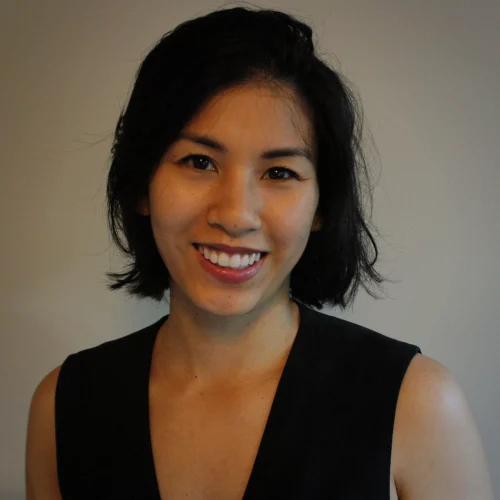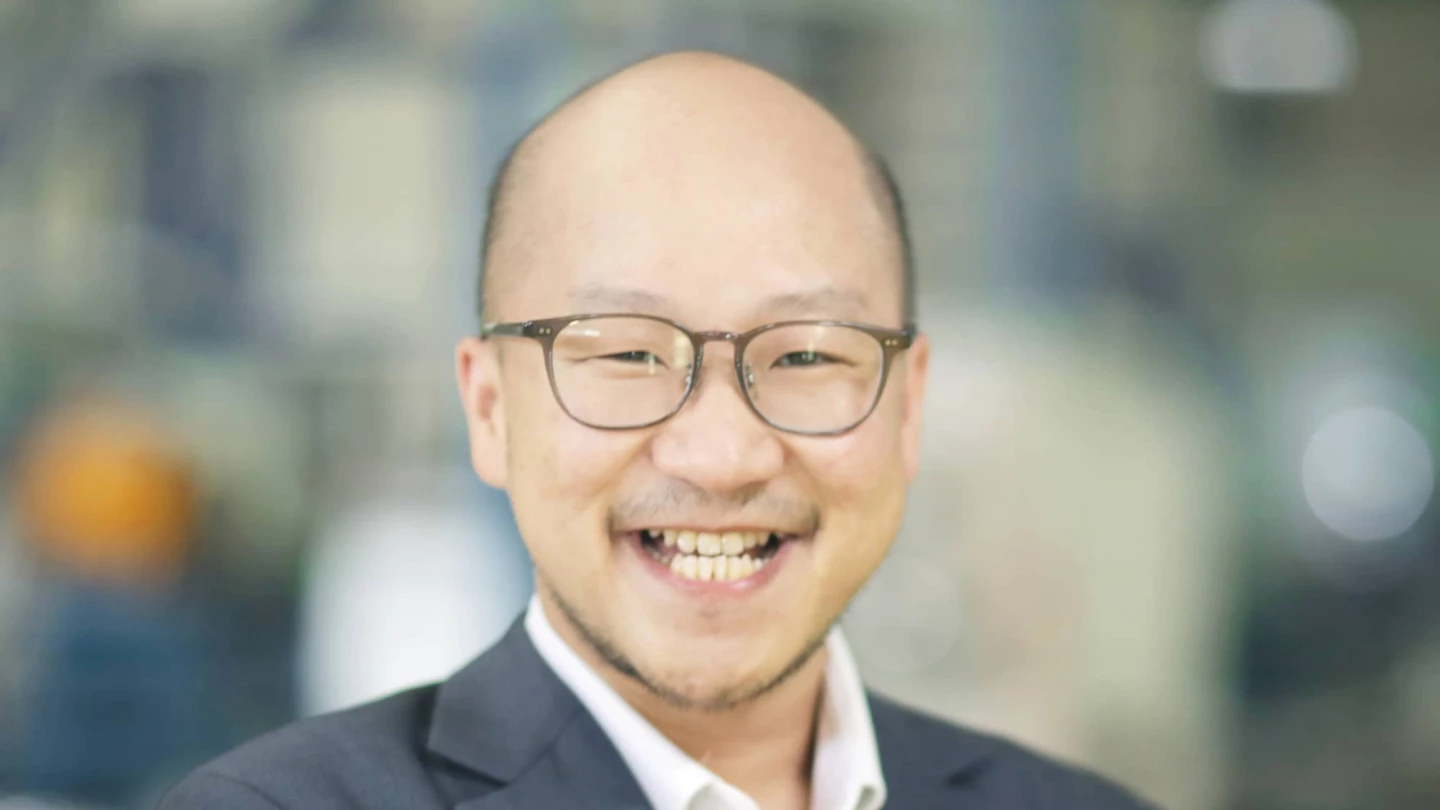Your career journey has been focused on strategic brand building, driving impact across organizations of all sizes and stages. How did you find your way from BCG to the environmental services space?
After consulting, I spent almost a decade in the beauty industry, first at Estée Lauder and ELC Ventures and then at Glossier. My interests are in innovation and how it shifts consumer behavior, and I spent my time in beauty identifying and (trying to!) scale innovation. The biggest shift in consumer behavior that took place during my time at ELC was in the digital space/ecommerce, and so I moved to Glossier to lead product marketing and development, and specifically to work on how to bring the physical product experience online.
Sustainability has been a factor in the beauty industry for a long time, but consumers and industry have expanded and evolved how they define this important area. My friends like to joke that I moved from Glossier to garbage, but the truth is that I followed consumers here. At Glossier, we took consumer feedback seriously; our consumers had direct access to us through our social media channels, and we read and considered every comment and suggestion. There was a consistent drumbeat of feedback on product packaging, which was an interesting challenge because Glossier prided itself on unique packaging experiences. We worked hard to reduce packaging and increase recycled content/use of recyclable materials—but consumers then started to ask for reduction and reuse options. It was clear that what was needed wasn't incremental change, but transformative change.
That's what led me to TerraCycle, an innovative social enterprise with the mission to eliminate the idea of waste. At TerraCycle, we work to change today's consumer behavior, which is acclimated to a linear system of disposability, into a circular system through our waste innovations—from creating the ability to recycle hard-to-recycle waste at its end of life to standing up global reuse platforms, and more.
“At TerraCycle, we work to change today's consumer behavior, which is acclimated to a linear system of disposability, into a circular system through our waste innovations—from creating the ability to recycle hard-to-recycle waste at its end of life to standing up global reuse platforms, and more.”
What keeps you motivated in your role, and how do you envision the growth of TerraCycle in the coming years?
I've built my career at the intersection of consumer and innovation because that area—specifically, how to “action” innovation—aligns so well with my interests and skill set. It requires interdisciplinary/intersectional thinking and alignment, culture change, and a bias for action through testing and piloting. There are definitely days that are hard, but I'm consistently motivated by the complexity of the challenge and the reason why we exist—and I always find it interesting.
My ambition is for TerraCycle to grow, because growth in our programs means more adoption and usage by consumers and brands. But my long-term ambition is specifically for Loop, our reuse platform, to scale. My leadership team and I know that recycling is a "right now" solution to prevent the waste that's being generated today from going to landfill or incineration. We need this first step in circularity to stop the extraction of finite virgin resources. But the real answer is not creating the waste to begin with, which is why we push for reduction and reuse.
The mission of TerraCycle is to eliminate the idea of waste by creating solutions in recycling, recycled content, and reuse. Can you elaborate on key solutions, technologies, and partnerships that have helped you make your vision a reality?
All of TerraCycle's programs require partnerships, whether it's with our processors, who we're asking to adapt their machinery or help us to scale lab-level processes, or with consumers, brands, and retailers. What's been really heartening this past year has been the unique partnerships that are testing new models to expand reuse or access to recycling hard-to-recycle materials, such as Aeon in Japan with Loop and Carrefour in France, or The Warehouse Group in New Zeland,, and Walmart in the US with Community Recycling Hubs.
Given your experience in the consumer product space, how can businesses make more strides at the front end of this issue, everything from advertising to sustainable packaging?
I think it's important for businesses to design for sustainability from the ideation stage. We often do waste audits or packaging audits with partners. But it's important to avoid the creation of that waste at the outset: How can you think holistically about your products (and product cost) from development all the way through end of life? How can you take responsibility and not leave the consumer with the "problem"? And, I think it's important to understand the importance of progress. Many sustainability initiatives won't be cost effective until they're at scale—but not undertaking them means that they will never have the opportunity to reach scale. We need to set milestones and make progress towards a sustainable future, versus debating "silver bullet" solutions and not taking any actions now.
What are some of the most memorable pieces of career advice you received and lessons you learned while at BCG and beyond that you now share with others?
A partner I worked with used to do a detailed deck review before key meetings and (jokingly, I hope!) charge us $1 for every typo or error. He taught me that the details matter, and to leave time to review and reflect. And, another partner that I worked with on multiple projects taught me the importance of understanding individual motivations, and how to use those to frame recommendations for alignment. It's his thoughtful and strategic approach to partnership that I use as a model to guide my interactions—both internally and externally!


